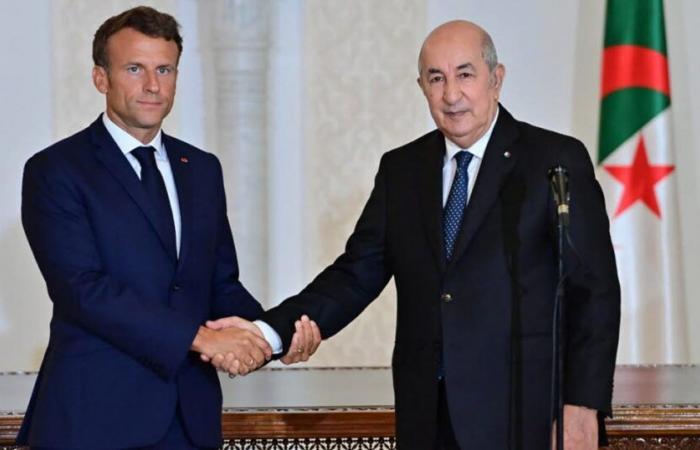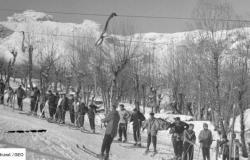
The deterioration of relations between Paris and Algiers escalated further after the repression of the Algerian influencer Doualemn, whom France wanted to expel. The TikToker prosecuted for inciting hatred on social networks was returned to France by the Algerian authorities.
France threatened to retaliate. French Foreign Minister Jean-Noël Barrot notably cited the possibility of restrictions on visas and development aid despite the consequences that the measures would have as collective punishment by the Algerian population. Algeria rejected this Saturday French accusations of “escalation” and “humiliation”, denouncing a “disinformation campaign” against Algiers.
For the moment, it is France which is suffering the most from the estrangement between the two countries since Emmanuel Macron decided to recognize Morocco’s sovereignty over Western Sahara last summer. Algeria, which a cold war pitted against the Shereef kingdom, felt betrayed as it supports the Polisario Front which demands independence for the former Spanish colony.
No more buying French wheat
The disruption of the fragile balance that France was trying to maintain between Algeria and Morocco is already having economic consequences. The Algerian regime has launched retaliatory measures against French companies and the Renault factory project in Oran is completely at a standstill. Algeria has also stopped buying French wheat on which it depended for two-thirds for its imports, which is bad news for French cereal producers.
France is more concerned about the suspension of cooperation with Algiers in terms of security and the fight against terrorism. The resumption of exchanges between intelligence services in this ultra-sensitive area is a priority for Paris. The Franco-Algerian crisis comes at a bad time, at a time when jihadists are strengthening themselves in the Sahel countries neighboring Algeria from where the French army has been driven out. France would also have a great need to re-establish dialogue with Algiers to face the risk of jihadists returning from Syria after the fall of the Bashar al-Assad regime and the coming to power of Islamists. Some of these potential “returnees” are in fact Algerians or Franco-Algerians.
The weapon of consular passes
Algeria’s refusal to expel an influencer is another reason for concern for the French government. Until now, the Algerian authorities had not yet used the weapon of consular passes to punish France for its about-face on Western Sahara. Algeria still issues very few (around 10 to 12% of readmission requests) but their number has not decreased despite the crisis between the two countries. France was able to deport just under 2,000 Algerians to the border in 2024 as in previous years, according to one estimate. These are mainly Algerians suspected of radicalization or disturbances to public order.
The Boualem Sansal affair at the heart of the crisis
Another subject of tension between the two countries, the Franco-Algerian writer Boualem Sansal, 80 years old, ill, has been incarcerated since mid-November in Algeria for endangering state security. A protest rally against the detention of Boualem Sansal was organized this Saturday in Paris.
French President Emmanuel Macron, who is calling for his release, judged in early January that Algeria was “dishonoring itself by preventing a seriously ill man from seeking treatment”. Algeria described these remarks as “shameless and unacceptable interference in an internal Algerian matter”.
According to Algiers, Boualem Sansal would have committed “a serious slip”, by affirming, in an interview with the far-right media Frontières, “that part of Algeria was attached to Morocco before independence”, this time in reference to in the Eastern Sahara.
France in fact serves as a scapegoat for President Abdelmadjid Tebboune, lacking legitimacy after being re-elected very poorly last September with 94.65% of the votes but a very low turnout (less than a quarter of voters according to some observers) .
Algerian influencers arrested in recent days in France had already mobilized in 2024 to encourage the diaspora vote in favor of President Tebboune. Their current campaign appears to be a coordinated response by figures close to the Algerian regime to opponents who tried to revive the “hirak” protest movement on social media a few weeks ago.





